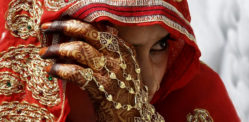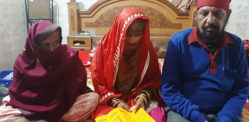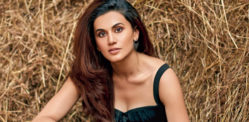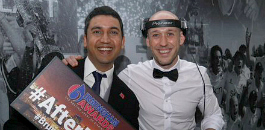"I realised that my parents wouldn’t accept this."
Coming out as a gay British South Asian is one of the most anxious and nerve-wracking moments.
Even in modern times, sexuality and orientation are such a stigma in Desi communities that it is rarely discussed.
Likewise, there is an extreme amount of judgment around those who do come out.
There are regular stares at functions, secret conversations and stereotypical narratives that drive more South Asians to hide who they really are.
This is even shown in mainstream media. For example, in the movie Bend it like Beckham (2000), Tony admits to Jas that “he really likes Beckham”.
She catches on that he’s coming out to her as a gay British South Asian and replies with “but you’re Indian”.
Although it’s a comical reply for cinematic quality, the truth is that reaction is present across Desi families.
It’s so vital to draw out these scenarios and that’s by talking about sexuality openly.
23-year-old Adil Rehman* is a British Asian from Birmingham who importantly shares his story of coming out.
He hopes that by telling his experiences and feelings, it will broaden the scope of such a hushed topic.
Life as Normal
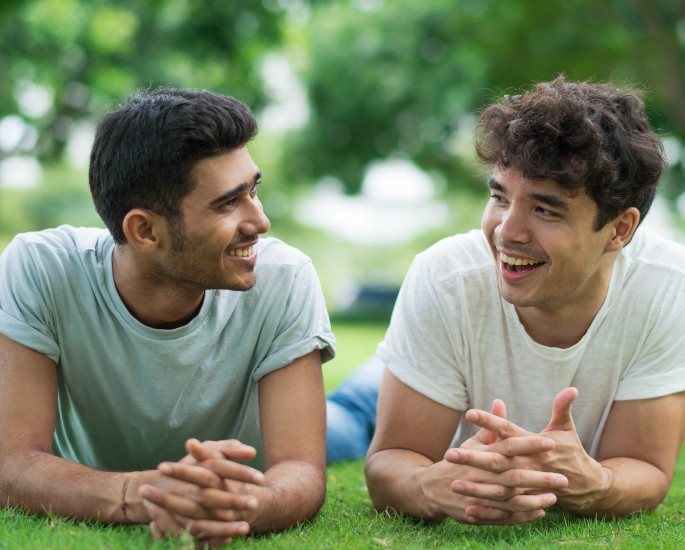
South Asians across the world and in the UK are surrounded by certain ideas.
Such was the same for Adil as he started his life bantering with friends and teasing others about being gay.
At such a young age, he wasn’t aware of sexuality and its importance but personified the narratives he was exposed to by his family and others:
“When I was in school, there was always banter about guys being gay and we would always take the mick out of more feminine boys. Being gay was looked at as a bad thing.
“When I was in year 7, there was a guy called Daniel who was quite soft-spoken.
“He wasn’t gay, but we stereotyped him just because he didn’t fit our definition of manly. It’s quite weird looking back on it.
“Anyway, we would tease Daniel about how he felt liking boys.
“It got so consistent and bad, that one day me and my mates walked in and our tutor pulled us out. He said Daniel’s been in tears because we’ve been teasing him.
“Even when we were getting told off, I just thought it’s only a joke. But that’s how it was at school. People would tease each other, sometimes it would get too far.
“Now, I don’t think you could get away with what we used to do or talk like at school.
“But I’d always be into girls. Whoever they were, I was a massive flirt.
“It wasn’t me trying to mask anything, it’s how I felt. I had girlfriends but hid them from my parents (I am Asian after all).
“So, I never had any early signs of who I truly was. I wasn’t a macho guy either, I was just me, just normal.”
“I’d even say I was more a hopeful romantic when I was young (I still am).
“I like treating partners right and by good standards, whether they were girls at school or men in my later life.
“But I don’t know, maybe subconsciously, I suppressed who I was. I don’t believe that you can learn to be a certain type of sexuality, gender, or orientation.
“You’re born with that feeling whether you realise it straight away or not.
“So, maybe those early teasing sessions were really me training my mind and heart to go in another direction.
“I mean it worked for a bit, but these things always come out – no pun intended.
“I honestly can’t pinpoint the time where I fully understood what I was feeling. It was so gradual that it felt like a normal transition kind of thing.
“It wasn’t an abrupt and Hollywood-type moment where it was this big realisation.
“I got more into fashion, when I would see boys, I’d think ‘oh they’re handsome’, or I’d be more invested in queer/gay-themed things like music, TV, films etc.
“Even then, I thought it was because I was becoming more mature and ‘accepting’ but it was just me being me without thinking it.
“But, when I was around my family, I would tone everything down. I wouldn’t talk about fashion or what TV I’m watching. If anything I kind of switched up.
“I’d be more ‘manly’. I’d talk about girls that were at college or cars I want to fix up. I knew how the Asian community was.
“I knew how judgmental aunties were and still are.
“Regardless of whether you’re gay or not, if you don’t show this tough guy, leader of the pack attitude, someone will always have something to say in Asian families. It’s so boring.
“But, I didn’t want to feel that same judgment. I would just keep my head down out of fear of being different.
“This became more conflicting as time went on.”
As a gay British South Asian, looking back on his early encounters with friends and girls, Adil realises how conflicted he truly was.
Others in a similar situation find it difficult to come clean about how they feel.
It’s these early conversations that can help more children to feel comfortable in speaking about how they feel. However, it’s shied away from in South Asian communities.
Being Honest

In trying to please others, Adil found himself at a crossroads. He wanted to come out and be his true self but was too reluctant due to the ‘dishonour’ he think it would cause:
“I was battling between being myself and being a version of Adil that others would accept and I was scared of my dad not thinking of me as his son.
“I was afraid my mum would kick me out or my cousins would be disgusted and think I was a person who needed help.
“Even the way my uncles and stuff would talk about people they thought were gay was frightening.
“I’ve experienced the rumours of other cousins and how my own family talk about them. But, I had to come out.
“I had to convince myself that it was the right thing to do.
“Desi culture makes you think so many negative and wrong thoughts because you’re exposed to those opinions so often.
“But I wanted to be that change, even if it meant losing my family and friends.
“It was a Monday morning and I’d just come back from college. All weekend I had been thinking about what I would say and how I would say it.
“I tried to practice in the mirror, that’s how nervous I was. I think it’s hard for everyone to come out but even harder for South Asians.
“There’s always this feeling that you could make this one decision and lose everything. I pulled my parents into the living room, my dad was reading the paper.
“I switched the TV off, which annoyed him straight away. But, my mum could tell something was wrong.
“I told them that I had something to say and they both stared at me with this blank look.
“My mum said ‘has something gone wrong with your uni application’. Such a typical response.
“I basically said everything I’ve said here, what I had felt growing up, how I saw my family react to different things.
“I said I didn’t want this to change us or how they felt about me. But I couldn’t help feeling it would.”
“So, it kind of blurted out. I just said ‘I’m gay’. I was so relieved saying it out loud. It was like the whole world lifted off my shoulders.
“My dad was stunned and stood up, my mum was looking at the floor. I didn’t really know what else to say.
“They remained silent and I asked them if they were okay.
“That’s another thing, why doesn’t our culture have any empathy, why is it always the repressed ones who feel like they’ve done something wrong?
“But, that’s how it came out. Not the most glamorous story, but it felt the most natural way I could say it.
“They both walked out and as my dad left, I heard him say ‘not my son, not my son’. I did hear my mum crying upstairs.
“I did expect this response and at the time, I understood they wouldn’t take it wholeheartedly.
“But, thinking about it now, I kind of feel like why didn’t they do anything more with me. It’s fine if they didn’t like it, but as their son, still, just be there for me.
“But, that’s the thing, South Asians don’t think about stuff like that because the whole concept of coming out or LGBTQ is so foreign to them.”
This unfortunate reaction is too familiar within Desi families.
This stems from a long line of outdated ideologies but also parents’ fear to confront this conversation head-on.
But, why should that be an issue? However, again, this stems down to wider knowledge and acceptance of these topics.
The Aftermath
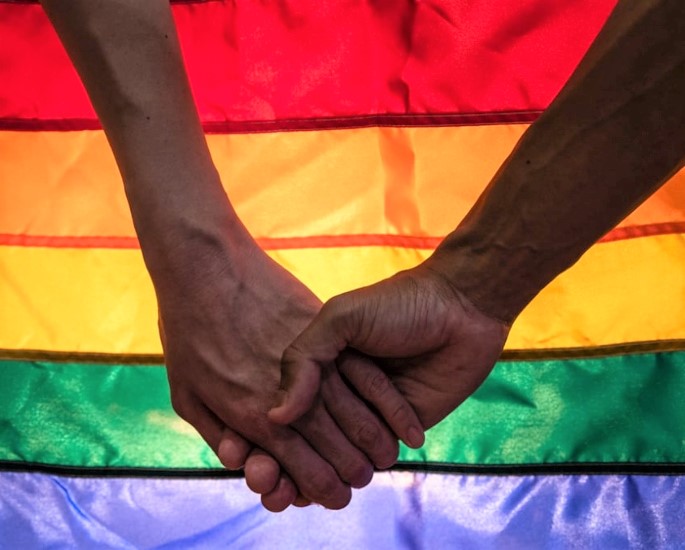
After breaking the news to his parents, Adil emotionally tells of the distance this caused between him and his parents.
As a gay British South Asian, these events have unfortunately led him to a solitary life away from his family:
“My parents woke me up so early, I think it was around 7 or 8 am. They said that they didn’t believe what I said and thought I may have been drunk.
“I thought to myself how is that possible when I don’t drink? But they were looking for any excuse for it to not be true.
“My mum said she had a feeling by the way I dress and the kind of parties I go to, but it wasn’t like I was gallivanting at pride parties or something, so even that was odd.
“But, as I said, it goes back to this Asian thing of if you do something a certain way, then you’re judged.
“My dad stayed silent and told me to keep things hushed. He said we need to sort this out.
“But I told them this wasn’t a decision, it’s who I am, it’s who I’ve always been.
“An hour later, my mum was on the phone to this priest or something, and of course, she didn’t say anything but tried to make it out as if I needed healing or guidance. It was unbearable for me.
“I realised that my parents wouldn’t accept this.
“Slowly, they started to be quieter around me, as if I was this fragile being. There came a time when I had to buy my own food, or make my own dinner.
“That’s not an issue, but when your mum suddenly stops caring about you, you realise. My dad barely looked at me.
“When I walked in the house, they’d either go upstairs or avoid me. It’s so traumatic looking back.”
“This was right before I went to uni, so it was trying to get to grips with that whilst accepting your parents kind of dislike you.
“Now, we rarely speak or see each other. I had to fend for myself at university. I got an overdraft to help me through first year along with a full-time job and paid my own way.
“Once I saved up enough money, I moved in with a mate and have been in the same small flat ever since.
“I haven’t spoken to any of my family in years. I’ve seen my cousins in town or in the club and I can tell by their stares that stories have been told.
“I text my mum now and again but it’s just a simple ‘hope you’re okay’ to which she replies sometimes.
“Over time, I hope they come to grips with it. But I hope elders within our communities realise their minds need to change.
“It’s fine if you don’t agree with something. But shutting your own blood out for being themselves is not right.”
Adil’s powerful words and series of events explain why coming out is such a massive step for South Asians.
Unfortunately, his story also highlights how the judgement of South Asian elders and communities is still prevalent.
Coming out as a gay British South Asian is a great hurdle but overcoming that is a great achievement.
As Adil mentioned, it’s such a massive weight to carry and whilst the idea of it coming out is scary, it’s a big leap in the right direction.
He hopes his story highlights just how important discussions are within South Asian communities, in the UK and worldwide.
The stigma and taboo of coming out or matters related to LGBTQ+ need to be addressed.
As a gay British South Asian, Adil says he wants the future of South Asian culture to be “an accepting, inclusive and diverse field of individuals.”
That’s why it is important to get these stories across.

























































